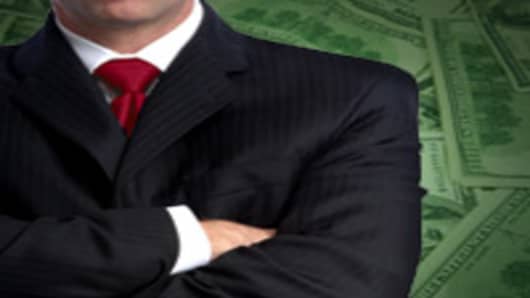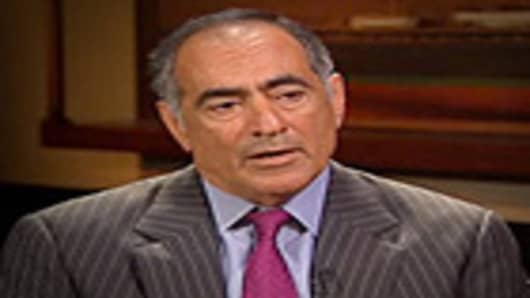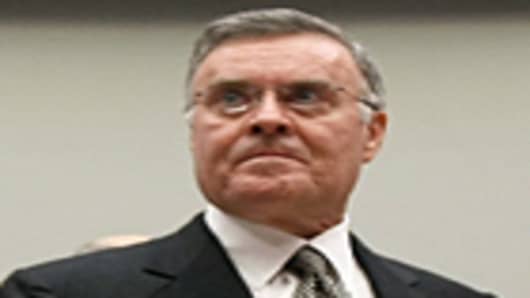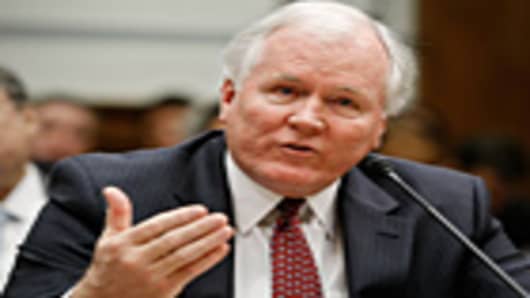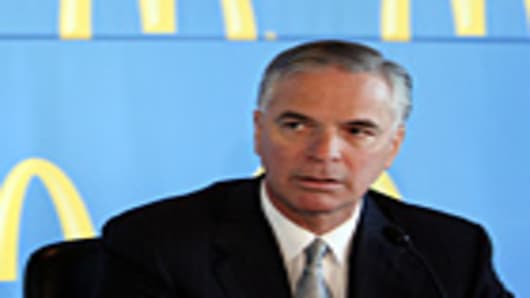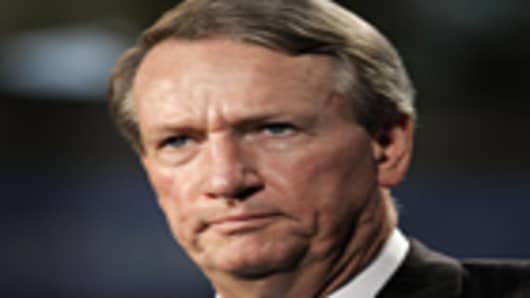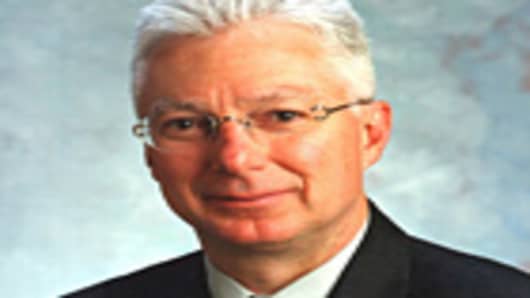Out with the old and in with the new, or so seems to be the trend among corporate executives exiting their management roles in 2009.
While the turnover rate of all CEOs nationwide is down from a year ago according to a survey conducted by the outplacement company Challenger, Gray & Christmas, there have been a number of executives from Dow components stepping down over from their post in 2009.
The aftermath of the financial crisis no doubt played a part for execs leaving, said John Challenger, CEO of the executive placement firm.
"It's been a tough year on CEOs and management teams, because of the consistency of the negative earnings that we have seen coming out of corporate America, especially in early 2009," said Challenger. "When results are bad, CEOs are in jeopardy. Sometimes they are scapegoats and sometimes they deserve it."
Whether the financial crisis drove them out or not, here's a list of some of the major executives who said goodbye in 2009.
John Mack
After steering Morgan Stanley through turbulent times during the financial crisis, the CEO announced in September of 2009 he would be stepping down from the brokerage firm. Robert Kidder, the bank’s lead director, said in a statement posted on the company Web site that Mack told board members 18 months prior to his public announcement that he wanted to retire when he reached the age of 65 in November 2009. Mack served as CEO for five years and officially steps down Jan. 1, 2010. Co-President James P. Gorman will succeed Mack.
Ken Lewis
Having served as thechief executive of Bank of America since 2001, Lewis announced he would be departing the company in late September of 2009. Shareholders voted to separate the role of chairman and CEO in April, ousting Lewis as the company chairman. It was speculated that the board of directors may have pressured Lewis to step down as chief executive, but Lewis said the decision was his own.
"The Merrill Lynch and Countrywide integrations are on track and returning value already. Our board of directors and our senior management include more talent, and more diversity of talent, than at any time in this company's history. We are in position to begin to repay the federal government's TARP investments," Lewis said in a statement posted on the bank's Web site. "For these reasons, I decided now is the time to begin to transition to the next generation of leadership at Bank of America."
Brian Moynihan, BofA's president of Consumer and Small Business banking, will take over as CEO Jan. 1, 2010.
Edward M. Liddy
After leaving retirement, Liddy agreed to head the behemoth insurance company America International Group during the brunt of the financial crisis for a salary of $1. But his tenure did not last long. After countless encounters with Congress and threats made to himself and family, Liddy made his way to the exit. He had joined the company in September 2008 and announced his departure in May 2009. His successor, Robert Benmoshe, took the reigns as CEO in August 2009.
AIG continues to have turmoil among its top ranks. The latest departure was announced Tuesday as Anastasia Kelly, who served as its general counsel and vice chair, announced her resignation on Wednesday. Kelly cited a pay reduction in her base salary under the pay czar's new restrictions for TARP recipients as her reason for leaving.
Ralph Alvarez
Alvarez,thepresident and chief operating officer of McDonald's , announced in early December he would go into retirement by the end of the month due to health-related issues. He also stepped down from the company's board of directors. His retirement became effective today.
“After more than 30 years in the restaurant industry, the past 15 with this great brand McDonald’s, I’ve decided to retire,” Alvarez said in a statement posted on McDonald's Web site. “Seven orthopedic surgeries and years of chronic pain culminating in two total knee replacements in the past six months have made me realize it’s time to move on.”
Rick Wagoner
In the Spring of 2009 the automobile industry was facing mass failure and America's largest automaker, General Motors, was at the center of the storm. Wagoner, then GM's CEO, faced heavy criticism for the crippling of the company and Washington took aim to rid GM of Wagoner. In March of 2009 Wagoner announced his departure, citing his plans to leave as being Washington's wish.
"On Friday I was in Washington for a meeting with Administration officials. In the course of that meeting, they requested that I 'step aside' as CEO of GM, and so I have," Wagoner said in a statement posted to the GM Web site.
Wagoner served as GM's CEO from 2000 to 2009.
Fritz Henderson stepped in to fill Wagoner's vacancy in March, but abruptly resigned in early December. Ed Whitacre, a former chairman and CEO at AT&T, took over as the interim CEO.
"Fritz has done a remarkable job in leading the company through an unprecedented period of challenge and change. While momentum has been building over the past several months, all involved agree that changes needed to be made," Henderson said in a statement posted on the company's Web site. "To this end, I have taken over the role of Chairman and CEO while an international search for a new president and CEO begins immediately.
A.G. Lafley
After serving as CEO of Procter & Gamble for nine years, and working for the company for more than 30 years, Lafley announced he would step down as CEO in June 2009, followed by his announcement in early December that he would be retiring from his position as chairman as well. His retirement goes in affect Feb. 25, 2010. Robert A. McDonald, the company's former chief operating officer, took over as CEO July 1, 2009, and will also fill Lafley's shoes as chairman as well beginning Jan. 1, 2010.
- Slideshow: Who Are the Higest Paid CEOs?


